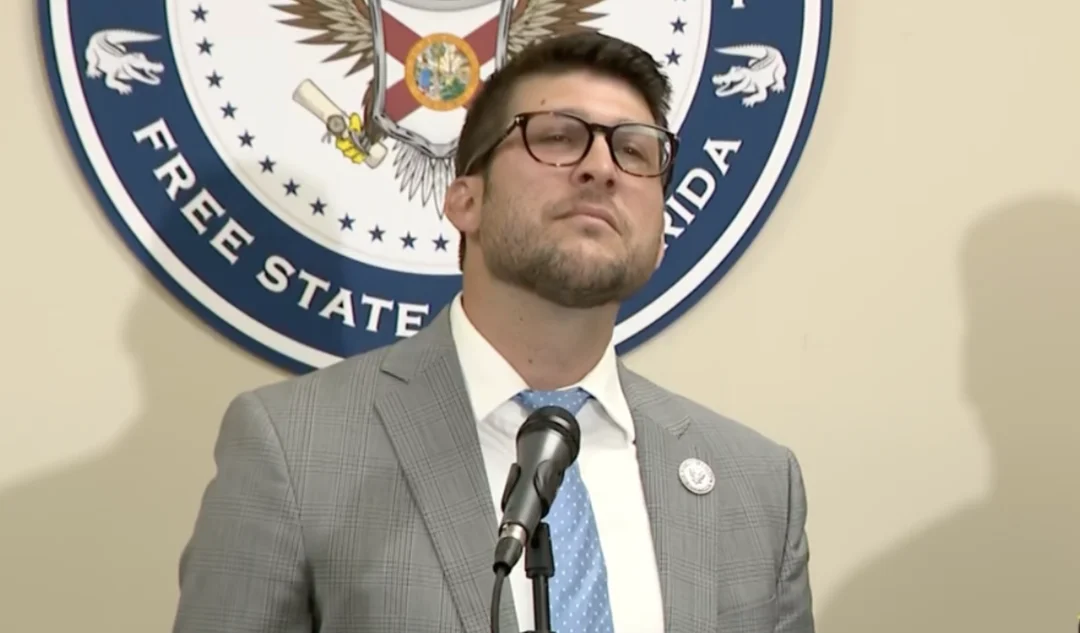
What Happens When a U.S. Citizen Gets Caught in Florida’s Immigration Dragnet?
In a stunning turn of events, a routine traffic stop in Florida has sparked a national debate on immigration enforcement, raising questions about civil rights and the limits of state authority. At the center of this controversy is Juan Carlos Lopez-Gomez, a 20-year-old U.S. citizen born in Georgia, who was wrongfully detained under a state immigration law that's currently under legal scrutiny. This incident highlights the potential for overreach in policies aimed at curbing illegal immigration, and its implications could ripple across the nation, affecting how states balance security with constitutional protections.
The drama unfolded when Lopez-Gomez was pulled over for speeding near the Florida-Georgia border. According to reports, he was arrested as an "unauthorized alien" under Florida's SB 4-C, a law signed by Governor Ron DeSantis in February 2025. Despite a federal judge's order temporarily blocking the law, Florida Highway Patrol proceeded with the arrest, leading to Lopez-Gomez spending a night in jail on an ICE hold. His attorney, Mutaqee Akbar, claims miscommunication or racial profiling played a role, as Lopez-Gomez speaks an indigenous language and is not fluent in English. This case gained widespread attention after the Florida Phoenix reported his release once his U.S. birth certificate was verified in court.

Adding fuel to the fire, Florida Attorney General James Uthmeier initially encouraged law enforcement to enforce the law, defying U.S. District Judge Kathleen Williams' restraining order. In a letter to agencies like the Florida Department of Law Enforcement, Uthmeier argued that the order didn't apply to them since they weren't named defendants in the lawsuit. However, after Judge Williams expressed astonishment at ongoing arrests during a hearing, Uthmeier reversed course, instructing officials to halt enforcement. This back-and-forth underscores a deeper conflict between state and federal authority, with critics like Alana Greer from the Community Justice Project warning that such actions could lead to more wrongful detentions. Pinellas County Sheriff Bob Gualtieri, for instance, refused to comply with the initial directive, emphasizing that he takes orders from judges, not politicians.
Comparisons to similar cases reveal a troubling pattern. Lopez-Gomez's experience echoes concerns raised in other states about racial profiling and the misuse of immigration detainers, which the Immigrant Legal Resource Center notes have led to U.S. citizens being mistakenly targeted. Governor DeSantis defended the law on social media, praising collaboration with the Trump administration, but this has drawn backlash for potentially violating the Supremacy Clause, which reserves immigration enforcement for the federal government. The April 29 hearing could be pivotal, as it may determine whether Florida's approach sets a precedent for other states or faces permanent injunction.

In essence, this incident serves as a wake-up call about the risks of aggressive state-level immigration policies. It not only questions the accuracy of enforcement but also highlights the human toll on individuals like Lopez-Gomez, who was caught in a bureaucratic nightmare. As debates intensify, one thing is clear: the balance between border security and civil liberties remains fragile.
What do you think—should states have more power in immigration matters, or does this case prove the dangers of such approaches? Share your views in the comments below and help us explore the broader implications of this story.
Related issues news
Is Juan Carlos Lopez Gómez a US citizen?
A federal judge brought up the arrest in Leon County of Juan Carlos Lopez-Gomez, a U.S. citizen born in Georgia, during a hearing Friday in which she extended her block of the new Florida immigration law until April 29.
Why was Juan Carlos Lopez Gómez arrested?
Lopez-Gomez was arrested Wednesday on a charge aligned with the blocked state law and listed in the arrest affidavit as “unauthorized alien enter Florida.” 'Do not attempt to remain in the United States. The Federal Government will find you.'
How long was Juan Carlos Lopez Gómez detained?
A man arrested by Florida Highway Patrol on April 16 under Florida's new immigration law has been released to his family after spending over 30 hours in jail under a 48-hour hold requested by U.S. Immigration and Customs Enforcement. There were two problems with the arrest of Juan Carlos Lopez-Gomez.
Can ICE detain a US citizen?
Although citizens cannot be detained, a person can be detained if citizenship can't be quickly proved with a passport, voter ID card, birth certificate or other documentation. Thus, citizens should be prepared to discuss or show a way of proving their citizenship.